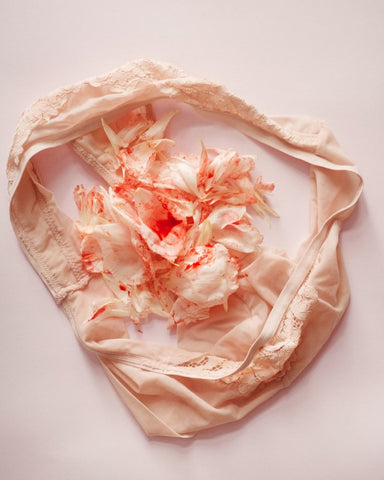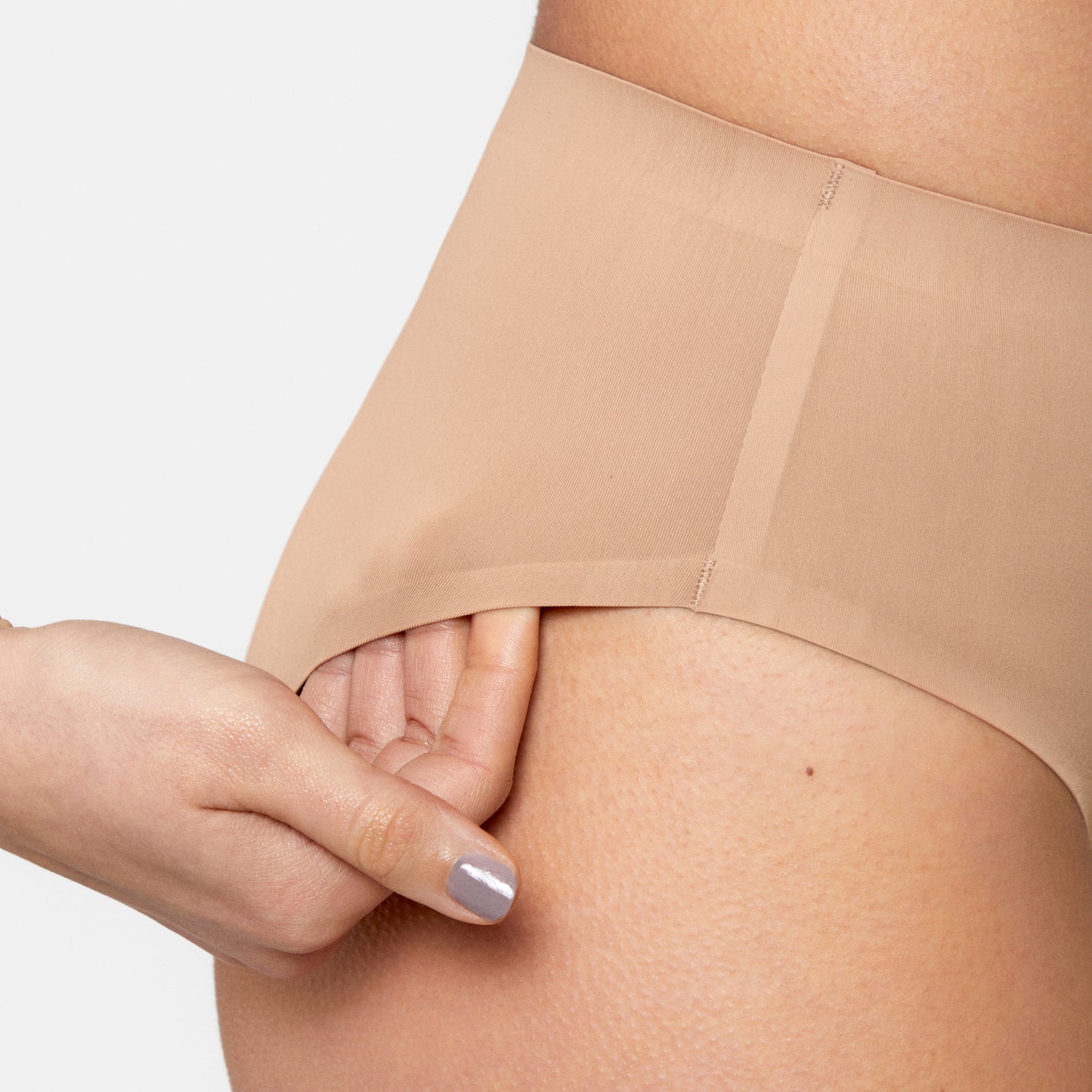Vaginal dryness: causes & tips for treatment
Approximately one in five women suffer from dry vaginal skin. By the age of 45, nearly half of women are affected. However, vaginal dryness still seems to be a taboo topic. Many women feel uncomfortable discussing it because it affects both their well-being and their sex life. So it's about time to inform about vaginal dryness - because it can have many causes and usually can be fixed quickly.
Vaginal Dryness Symptoms: Do I Have It?
Normally, the vaginal skin inside the vagina is moist. This is completely normal and important. Vaginal fluid maintains a healthy intimate flora and consists of lactic acid bacteria, which are "good bacteria" that prevent the entry and proliferation of harmful germs.
In the case of vaginal dryness, the ecosystem of the vagina becomes imbalanced, and the natural moisture content is reduced.
You will quickly notice if your vagina is too dry - you may experience discomfort, itching, or burning during everyday situations such as sitting, walking, or cycling. Sexual intercourse can also be unpleasant due to lack of moisture and may cause painful fissures. A dry vagina is a common breeding ground for bacteria, fungi, viruses, or germs, which can lead to infections.
Vaginal dryness can occur temporarily or chronically depending on the cause.
Possible Causes of Vaginal Dryness
Both younger and older women, especially during menopause, can experience vaginal dryness. Normally, a healthy blood flow to the mucous membranes of our vagina ensures sufficient moisture. However, when the blood circulation is disrupted, it can result in not only cold hands and feet but also a dry vagina.
Therefore, insufficient blood flow is often indirectly responsible for a dry vulva. The causes can be diverse, including both psychological and physical factors.
Estrogen Deficiency
Insufficient estrogen production leads to a lack of moisture in the vagina. Causes of estrogen deficiency can include taking micro-pills, menopause, pregnancy, or breastfeeding.
Micro-pills consist of two hormones: a low-dose progestogen (progesterone) and a low-dose estrogen. However, these pills suppress the body's own estrogen production. As a result, some women may have insufficient estrogen levels. The vaginal skin is not adequately moisturized, and the mucous membranes become thinner.
Estrogen deficiency is also caused by menopause. This is completely natural and occurs because estrogen levels decrease during this phase of a woman's life. This, in turn, leads to changes in the vagina. The tissue regresses, the vaginal skin becomes thinner, and it is no longer as well supplied with blood. It loses elasticity and produces less vaginal secretions. Moisture in the vagina decreases.
Estrogen levels also fluctuate during and after pregnancy and while breastfeeding.
Vaginal Dryness Due to Menstrual Products
Tampons are absorbent and convenient, but they absorb not only blood but also vaginal fluid, which can cause dryness in the vulva. Therefore, it is better to use alternatives like period underwear. The underwear is reusable, leakproof, comfortable, and you don't produce plastic waste.
Medications
Hormonal medications can also cause a dry vulva. This includes not only the pill but also antidepressants, for example.
Stress and psychological distress
Stress, trauma, depression, or emotional distress can have various physical consequences, including vaginal dryness. Stress affects estrogen levels and can therefore impact the well-being of the genital organs.
Medical conditions
Conditions such as diabetes, hypertension, endometriosis, or autoimmune diseases can influence estrogen production. Additionally, radiation therapy, anti-hormonal treatments, or chemotherapy can disrupt the hormonal system, leading to vaginal dryness.
Use of incorrect products for intimate care or during sex
Aggressive intimate care products, shower gels, or incompatible lubricants can negatively affect the delicate "ecosystem" of the vagina and disrupt the perfectly balanced vaginal flora. The use of such products can alter the pH level of the vagina, which is typically between 3.8 and 4.5 - in the acidic range. Consequently, incompatible products can also cause vaginal dryness.

What to do for vaginal dryness
Depending on the cause of vaginal dryness, there are fortunately several ways to address it. Here is an overview of various tips for vagina dryness:
Proper intimate hygiene
It's best to clean your intimate area with lukewarm plain water or with specific gentle products.
Exercise helps
Whether you ride a bike, go jogging, or simply take a walk - physical activity stimulates blood circulation, including the blood flow to the vaginal mucosa. However, avoid chlorinated water if you have vaginal dryness!
Choose the right clothing
Tight clothing and panties made of synthetic fibres enhance a dry vulva because they increase the temperature in the intimate area or are impermeable to air due to the material. This creates a favorable environment for bacteria. Therefore, go for underwear made of cotton and avoid tight pants.
Creams can provide relief
Specific vaginal creams available at pharmacies can provide quick relief. However, if vaginal dryness returns after treatment, the causes may not be purely local. In such cases, seek medical advice.
Relaxation
If you're under stress and pressure, it can likely result in a dry vagina. Measures for stress management can help. Try yoga, meditation, or mindfulness exercises. Taking a break over the weekend can also be beneficial.
Oh yesss!
Regular sex and/or masturbation can stimulate a dry vagina. Sexual arousal stimulates secretion production. If you experience pain or discomfort during sex, use water-based lubricants, as they are usually well-tolerated.
Hormones
Vaginal dryness is a natural phenomenon that many women experience during menopause. You're not alone. One proven therapy for treating vaginal dryness is the local application of hormones, such as creams, suppositories, tablets, or a special vaginal ring inserted into the vagina. These low-dose preparations often provide quick relief for vaginal dryness.
If the cause of your vaginal dryness is related to psychological issues or psychological distress, it is advisable to seek therapy. You should also discuss the use of any medications or products with your doctor. If vaginal dryness persists for an extended period, please consult your doctor.
At femtis, we hope that "taboo topics" like vaginal dryness are discussed more openly and that the stigma surrounding them is broken.


